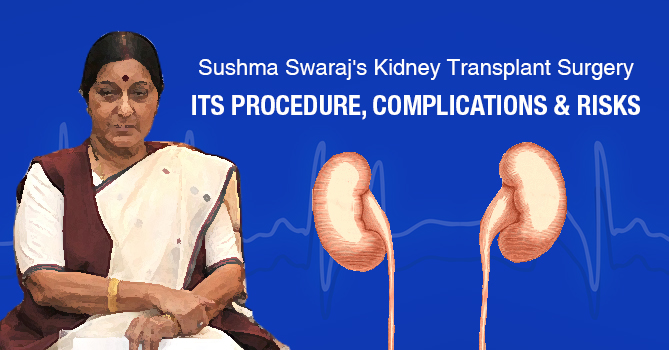Humans have the ability to create life. Not because of any special talent or knowledge but because nature has given us, all of us, the ability to procreate. This is of course the single most remarkable aspect of life. But it takes courage and humanism of the highest level to help someone extend his or her life by donating a part of one’s own body. This perhaps would be the noblest act that one human being can do for another one.
Why the fear?
Most of us live life on a daily basis assuming that we will live another day and we take that for granted. But the moment we get a serious ailment we fear losing our life. The fear is so overcoming that we forget to value the moments that we have and lose the opportunity to live it to the fullest.
There are only two facts of life that EVERY, yes, EVERY person born can be sure of. His birth and his death. Yet we live our lives in fear of losing it someday when we perfectly know that it will happen anyways. So scared are we, that the very thought of giving one of our body part to someone else is frightening. Is this fear justified?
Did you know?
- Almost 1.5 lakh people in India need a kidney, however, only 3000 of them receive one.
- Only 1 out of 30 people who need a kidney receive one.
- 90% of people in the waiting list die without getting an organ.
- India’s annual liver transplant requirement is 25,000, but we manage only about 800.
- 70% liver transplants are taken care of by a live donor, but 30% are dependent on cadaver donations.
Source: Times of India, DNA India
Cobwebs of Myth
There are several misconceptions that fuel our fear and holds us back from donating an organ. Let’s look at some of the common myths:
- I am getting old therefore I cannot donate: Not true. The medical specialists do not look at the age of the donor but the quality of the organ and tissue. Several donors in their 60s and above have donated organs successfully.
- I am already under medical treatment: The specialists study your existing medical condition before deciding on the suitability for organ donation. The donor’s health is given paramount importance before proceeding with any transplantation. The donor’s clear consent is taken after explaining all the procedures and care involved, in both pre and post operation. People continue to lead healthy lives post organ donation and can carry on with all the normal activities like running, playing and swimming as any normal healthy person would do.
- My religion may not allow me to donate: No religion prohibits organ donation.
- What organs and tissues can one donate? Major donor organs and tissues are heart, heart valves, kidneys, liver, lungs, eyes, pancreas, bone marrow, connective tissues, middle ear and bones. Just one donor can extend the life of several terminally ill patients.
- Can a person who has died in an accident donate organs? Organ donation requires immediate commencement of transplant procedure. The time lost from the time of an accident to the time a procedure can commence in a hospital, makes the organ unsuitable for transplant.
- Can a brain dead person donate? Yes. A person who has been declared brain dead has no chance of recovery and therefore is regarded as a suitable case for organ transplant. Most transplant takes place in a hospital in cases where a person may have been declared brain dead but the body is being kept alive using a ventilator. A transplant can only happen with the consent of the donor by way of having a donor card and by giving consent to donate or written consent provided by his next of kin.
- Who will receive my organ? Decision is taken by the doctors based on urgency and medical compatibility between donor and recipient.
- Post-transplant what will happen to my body? The doctors treat the donor’s body with utmost respect and the body is closed up in a way similar to a normal operation. The body is then handed over to the next of kin, as per standard procedure and regular process of funeral may take place thereafter.
Time for change
It is time for us to realize that our life is limited and we need to live it to the fullest. However, if we do get into a situation where we become brain dead then wouldn’t it be our moral duty to allow another human a chance to live a little longer? We need to bring this topic out in the open and must discuss this within the family. We must seek to reason with those who are still opposed to the idea and show them the positive side of organ donation by removing whatever doubts that they may have.
Let us decide today to make a difference and take a pledge to donate our organs. A first step towards that would be to get a Donor Card from an accredited organization that facilitates organ donation. There are several organizations that you can reach out to.
Take that step.




